In the early hours of a bustling Monday morning, as the city awakens to the promise of new beginnings, a small clinic in the heart of downtown is already a hive of activity. Here, EHR automation isn’t just a buzzword; it’s the backbone of an innovative approach to healthcare that turns the tide on traditional medical record-keeping. Picture this: a patient walks in, her medical history complex and layered with years of treatments and consultations. In the past, this would have meant sifting through piles of paperwork, a time-consuming task fraught with the risk of human error. But not today.
Thanks to medical record system automation, within seconds, her entire medical history is displayed on a sleek, digital dashboard accessible to her healthcare provider. A recent surgery highlighted, allergies flagged, and previous prescriptions reviewed—all without flipping a single page. This scenario isn’t from a distant future; it’s happening now, transforming patient intake into a seamless, efficient process that allows doctors to spend more time caring and less time querying. This is just a glimpse into the world revolutionized by EHR automation, where technology enhances human touch, making healthcare more accurate, personalized, and, most importantly, human.
Top Takeaways:
- Medical records automation transforms EHR systems into powerhouses of efficiency and accuracy. From seamless data entry and retrieval to streamlined billing and coding, automating key EHR processes not only saves precious time but also significantly enhances patient care quality. Isn’t it time to unlock the full potential of your healthcare services with automation?
- From integration complexities and data security to ensuring user adoption and achieving interoperability, the path to automated medical records is paved with obstacles. But remember, with the right planning, robust security measures, and comprehensive staff training, these hurdles can be transformed into stepping stones towards a seamless, efficient healthcare operation.
Table of Contents:
- What is Medical Record Automation?
- Benefits of Medical Record Automation
- Challenges in Automating Medical Records System
- What Processes in EHR Can Be Automated?
- EHR Automation Tools and Solutions
- How Topflight Can Help
What is Medical Record Automation?
Medical record automation embodies the transformation of healthcare documentation through the use of cutting-edge technology. It signifies the shift from traditional, manual handling of records to an automated, digital approach. At its core, automated medical record systems deploy technologies such as
- Artificial Intelligence (AI)
- Robotic Process Automation (RPA)
- Optical Character Recognition (OCR)
to enhance the accuracy, accessibility, and efficiency of medical records management. By streamlining data processing, these systems also support faster diagnosis and improve tracking of patients’ health conditions, ensuring better outcomes for both clinicians and patients.
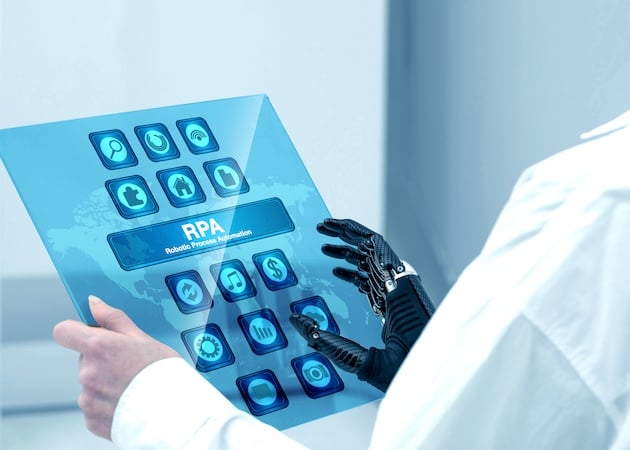
This process transcends mere data entry; it involves the intelligent extraction, processing, and storage of information from a variety of medical documents. Automated medical record solutions streamline the entire lifecycle of patient data—from initial documentation to retrieval for clinical use—thereby ensuring that healthcare providers have timely access to vital patient information.
By prioritizing the automation of healthcare records, clinics can equip clinicians with timely and accurate health information, enhancing both operational efficiency and patient care.
This automation not only bolsters the quality of patient care but also optimizes the operational aspects of healthcare delivery, making it a cornerstone of modern medical practice.
Read more on medical practice automation
Benefits of Medical Record Automation
The advent of electronic health record automation has ushered in a new era of efficiency and accuracy in the healthcare industry. This transformative approach not only streamlines administrative tasks but also significantly enhances patient care. Here, we delve into the key benefits that underscore the importance of integrating EHR automation into healthcare systems.
Efficiency and Productivity Boost
Medical health record automation minimizes the need for manual data entry, substantially reducing time spent on administrative tasks. This shift allows healthcare professionals to allocate more time to patient care, thereby increasing overall productivity and operational efficiency.
Also Read: Patient Intake Automation Management
Implementing healthcare record automation not only streamlines data entry but also exemplifies automation in healthcare administration, saving valuable time for clinicians.
Diving into EHR system development can be a game-changer for healthcare providers, offering a roadmap to more efficient patient care and management.
Unparalleled Accuracy
One of the standout advantages of electronic medical record automation is its ability to drastically reduce human error. Automated healthcare records eliminate discrepancies, ensuring high accuracy in patient data management.
Automated systems ensure that patient information is accurately captured and updated, leading to improved patient safety and quality of care.
Cost-Effectiveness
By cutting down on manual processes, healthcare organizations can achieve significant cost savings. These savings stem from reduced labor costs, minimized paper use, and decreased need for physical storage space.
While the cost of EHR implementation might seem daunting at first, the long-term benefits of digitizing patient records and automating interactions with them are undeniable.
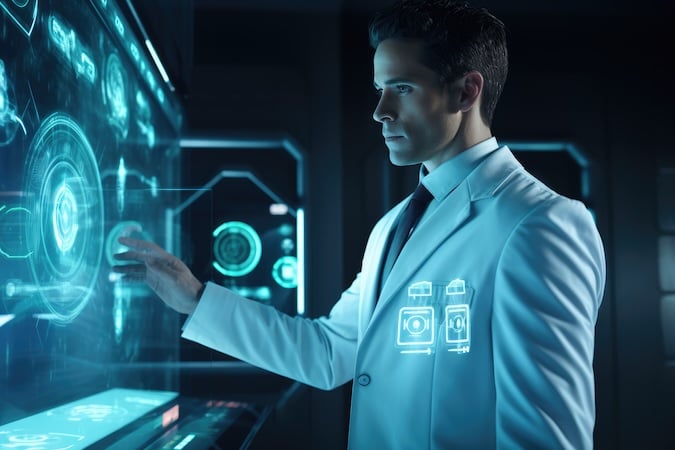
Enhanced Patient Care
With instant access to accurate and comprehensive patient records, healthcare providers can make informed decisions faster. This readiness enhances the quality of patient care, ensuring that treatments are both timely and tailored to individual needs.
Regulatory Compliance and Security
Automated systems are designed to adhere to stringent data security and privacy regulations. They offer robust features such as audit trails and encryption, ensuring that patient data remains confidential and secure.
Scalability and Integration
Electronic health record automation facilitates seamless integration with other digital health tools and systems. This scalability ensures that healthcare providers can easily adapt to technological advancements and expanding service offerings.
In essence, EHR automation stands as a pillar of modern healthcare, offering a spectrum of benefits that propel healthcare organizations towards more efficient, accurate, and patient-centered care.
Have you ever wondered about the steps involved in EHR implementation? It’s a process that transforms the traditional healthcare system into a digital powerhouse.
Challenges in Automating Medical Records System
Embarking on EHR system automation? It’s a transformative journey with its fair share of hurdles. Understanding these challenges is crucial for clinical executives and start-up founders aiming to streamline healthcare operations. Here’s what to keep an eye on:
Integration Complexity
Integrating EMR systems into existing healthcare infrastructures is no small feat. The complexity lies in ensuring seamless data flow across diverse systems and applications, all while managing compatibility issues. This requires meticulous planning and coordination.
Also Read: A Guide to Integrating Your Health App with EHR/EMR
Data Security and Privacy
The digitization of patient records introduces vulnerabilities such as unauthorized access and potential data breaches. To uphold patient confidentiality and comply with regulations like HIPAA, robust security measures, including encryption and access controls, are non-negotiable.
User Adoption and Training
Transitioning to automated systems necessitates a cultural shift. Healthcare professionals accustomed to manual record-keeping may exhibit resistance. Overcoming this challenge involves comprehensive training and ongoing support, fostering acceptance and smooth adaptation to new technologies.

Transitioning from paper records to intelligent automation systems requires robust training and cultural adaptation among healthcare professionals.
Standardization and Interoperability
The lack of interoperability between different EHR systems can impede efficient healthcare delivery. Achieving seamless communication requires standardizing data formats, coding systems, and terminology.
Achieving EHR interoperability is crucial for seamless communication and data exchange across different healthcare systems, enhancing patient care on a global scale.
Cost and Return on Investment
The initial outlay for EHR system automation is considerable, encompassing software licenses, hardware upgrades, and training. Evaluating the long-term benefits against these costs is essential for justifying the investment.
Addressing these challenges head-on paves the way for a successful EHR system automation project. Partnering with a seasoned developer like Topflight can help navigate these obstacles, ensuring a smooth transition to a more efficient, secure, and compliant healthcare operation.
Why is hospital management system development a game-changer for enhancing patient care through digitization and optimization? Join us as we explore strategic moves that can propel your hospital operations into the future.
What Processes in EHR Can Be Automated?
In the ever-evolving landscape of healthcare, medical document automation stands out as a beacon of efficiency and accuracy. By automating key processes within Electronic Health Records (EHR), healthcare providers can significantly improve operational efficiency and patient care. Here are some pivotal processes ripe for automation:
Data Entry and Retrieval
- Automated medical document extraction leverages AI to seamlessly extract data from diverse sources, such as doctor’s notes and lab reports, drastically reducing manual entry.
- Intelligent data capture enables precise extraction from both structured and unstructured documents, enhancing data accuracy and streamlining entry processes.
Documentation and Charting
- Automated charting populates patient charts with critical data, including vital signs and medication information, ensuring up-to-date and accurate documentation.
- Template-based documentation utilizes pre-defined templates for common procedures, fostering consistency and saving valuable time.
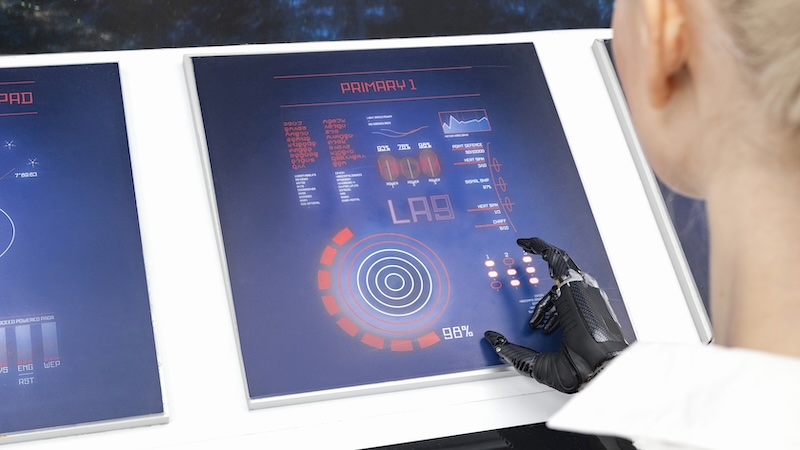
Billing and Coding
- Automated coding analyzes clinical documentation to suggest appropriate billing codes, minimizing manual effort and enhancing billing accuracy.
- Claim processing is streamlined by extracting relevant information and populating claim forms automatically, accelerating the billing cycle and reducing errors.
Exploring automation in medical billing reveals how technology can streamline processes, reduce errors, and improve efficiency in healthcare finance.
Decision Support
- Clinical decision support analyzes medical documents to provide real-time alerts and recommendations, aiding in clinical decision-making and adherence to best practices.
- Drug interaction checking automatically flags potential drug interactions, improving patient safety and care quality.
By integrating medical document automation into EHR systems, healthcare organizations can unlock significant benefits, including time savings, improved data accuracy, enhanced workflow efficiency, and superior patient care.
For example, decision support systems integrated with EHR can analyze pharmacy data to flag potential health risks associated with drug interactions.
Calling all dental professionals! Imagine a world where dental practice automation not only simplifies appointment scheduling and treatment planning but truly revolutionizes patient care. Curious? Our blog has all the insights you need to turn this dream into reality.
EHR Automation Tools and Solutions
In the quest to revolutionize healthcare delivery, automated medical records play a pivotal role. They not only streamline healthcare operations but also significantly enhance patient care. Selecting the right EHR automation tools and solutions is fundamental for healthcare providers to reap these benefits. Here’s a breakdown of the key options available.
Read our guide on choosing an EHR system.
Data Retrieval/Entry Automation
Automating data entry in EHR systems primarily involves the use of technologies like RPA and AI. These technologies help in reducing manual data entry, minimizing errors, and ensuring that data across various systems is synchronized without redundant effort.
- HIPAA-compliant voice data entry like nVoq or Amazon Transcribe Medical.
- Generative AI tools work off large language models like ChatGPT that can process requests, retrieve patient info, and feed it to EHR platforms.
- OCR solutions like Amazon Textract extract health info from scans, etc.
- AWS HealthScribe leverages the power of generative AI to accurately transcribe and succinctly summarize conversations between patients and physicians.
Read more on how to use AI to summarize medical records.
- Extracting data from PDFs and other external sources using tools like Astera ReportMiner
Also Read: HIPAA-Compliant Ap Development Guide
With electronic health records (EHR) automation, advanced tools powered by large language models in healthcare seamlessly synchronize patient data across systems, reducing manual interventions.
Billing Automation
EHR systems integrated with automated billing solutions streamline the billing and claims process by using patient data directly from the EHR. This integration helps generate accurate billing claims, which are more likely to be approved by insurance providers upon first submission. Automated billing systems can also handle tasks such as insurance eligibility checks and claim status updates in real time, which significantly reduces the administrative burden and improves cash flow.
- Healthie’s automated medical billing software integrates with EHR systems to automate patient data entry, claims generation, and real-time eligibility verification.
- GaleAI, a standout AI medical coding platform from our portfolio, harnesses an impressive array of AI and ML technologies to redefine the automation of medical coding.
The impact of medical coding artificial intelligence on the healthcare industry cannot be overstated; learn more about its potential benefits.
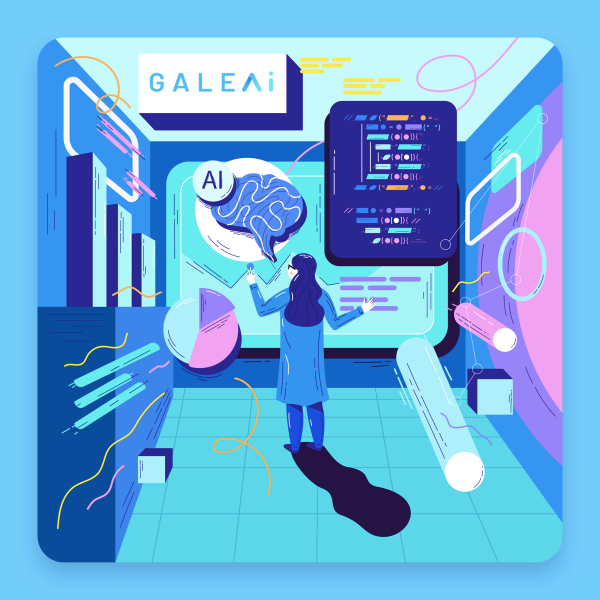
Utilizing Natural Language Processing (NLP), GaleAI interprets and processes the nuanced language found in medical notes, enabling it to identify relevant CPT codes with remarkable accuracy and speed. Its deployment of deep neural networks allows the platform to continuously learn and evolve from each interaction, enhancing its coding recommendations over time.
Furthermore, GaleAI incorporates OCR technology, which grants it the ability to swiftly recognize and analyze handwritten notes, making it a versatile tool for a wide range of medical documentation.
Integrating EHR in medical billing is not just about going digital; it’s about making every step of the healthcare journey smoother for both providers and patients.
Patient Scheduling Automation
EHR systems often include patient scheduling features that automate the appointment booking process. These systems can manage schedules for multiple providers, send automated appointment reminders to patients, and adjust schedules in real time based on cancellations or rescheduling. You’re likely to rely on such automation tools as:
- Generative AI bots work off large language models capable of mimicking human conversations.
- Sophisticated reminders automatically identify visits that are likely to be missed, double-check with patients, and find a replacement if necessary.
Implementing medical patient scheduling software can significantly enhance the efficiency and reliability of booking appointments, reducing wait times and improving patient satisfaction.
Clinical Decision Support
Clinical Decision Support systems integrated into EHRs provide healthcare providers with real-time information and evidence-based recommendations to aid in clinical decision-making. These systems can analyze vast amounts of data to offer insights that help in diagnosing and treating patients more effectively
- the integration of CDS tools in EHRs can alert physicians about potential drug interactions or recommend diagnostic tests based on the patient’s specific symptoms and medical history.
Ever wondered how a medical practice management system can transform the backbone of your healthcare facility, making everything from scheduling to billing as smooth as silk? Dive into our blog and discover the secrets to streamlining operations effortlessly.
Read more on clinical decision support systems implementation.
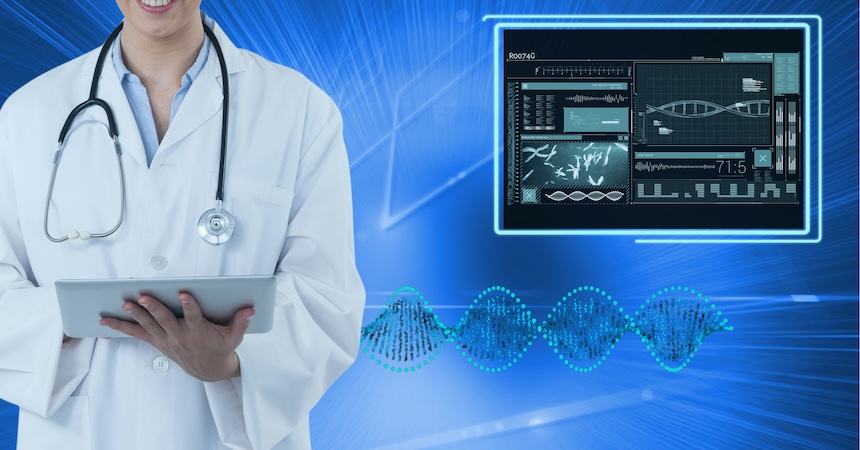
How Topflight Can Help Automate EHR Systems
In the rapidly evolving healthcare landscape, the automation of EHR systems stands out as a critical advancement. At Topflight, we are at the forefront of this transformation, bringing unparalleled expertise and innovative solutions to the table. Here’s how we can help your clinic make a difference:
- Proven Track Record: Our extensive experience in developing AI-based health products sets us apart. We’ve successfully harnessed artificial intelligence to streamline complex medical processes, making healthcare delivery more efficient and effective.
- Broad EHR System Experience: Whether it’s integrating with heavyweight platforms like Epic and Cerner (or Allscripts EHR integrations) or leveraging agile, API-first EHRs such as Medplum, our team has done it all. This breadth of experience ensures that regardless of your current system, we can enhance it to meet the demands of modern healthcare.
- Clinical Workflow Automation: Our expertise isn’t just limited to the backend. We excel in automating clinical workflows, crafting seamless in-EHR user experiences, and developing intuitive outside EHR UXs with Single Sign-On (SSO) capabilities. This holistic approach ensures that both healthcare professionals and patients benefit from our solutions.
Check out our EHR integration services
GaleAI: A Case Study in Excellence
For a tangible example of our work, look no further than GaleAI. This cutting-edge platform exemplifies our approach to EHR automation by integrating directly with major EHR systems. It revolutionizes the billing process, allowing healthcare professionals to focus on what they do best—caring for patients. GaleAI not only streamlines workflow but also showcases our commitment to creating impactful, user-friendly solutions. The integration of AI in medical billing and coding offers a glimpse into the future of healthcare, where accuracy and efficiency are paramount.
The integration of healthcare record automation and advanced tools like large language models in healthcare ensures that patient care evolves with precision and efficiency.
At Topflight, we’re more than just developers; we’re innovators committed to enhancing healthcare through technology. Partnering with us means choosing a perfect match to automate EHR systems, equipped to deliver solutions that are as robust as they are revolutionary.
Ever thought about how you could make the healthcare experience smoother for both patients and providers? Well, EHR process automation is like the Swiss Army knife for healthcare efficiency. From enhancing patient tracking to automating appointment scheduling, the options are extensive. Imagine a world where prescription refills happen with a click, and health records update in real time. Yes, that’s the power of EHR automation at work. The key lies in leveraging advanced software that integrates seamlessly with your EHR system, automatically parsing through notes, lab results, and even voice recordings to update patient files without manual intervention. It’s like having a diligent assistant who never takes a day off. Diving into the toolbox, several ingenious tools stand out for automating medical records. Imagine RPA tools that read and understand doctor’s notes faster than you can say “EHR” or AI solutions that tirelessly enter data, ensuring no detail is missed. These aren’t just tools; they’re game-changers in managing health records with precision and efficiency. EHR processing might sound complex, but it’s essentially the heartbeat of digital healthcare. It’s all about how we manage and use those electronic records to deliver better care. From recording a patient’s first visit to tracking their health journey over time, EHR processing ensures that every piece of information is right there when you need it, making healthcare not just smarter but more compassionate. Picture this: EHRs not just as digital filing cabinets, but as dynamic, intelligent systems that anticipate needs and suggest care options. With automation and AI, we’re talking about reducing errors, cutting down on paperwork, and unlocking insights into patient health that were previously hidden in plain sight. It’s a future where technology empowers healthcare professionals to do what they do best—care for patients. Looking ahead, the horizon is buzzing with innovations. Voice recognition for hands-free documentation, blockchain for unbreakable security, and personalized AI that tailors care to the individual patient are just the tip of the iceberg. These aren’t just trends; they’re the stepping stones to a future where healthcare is more accessible, efficient, and personalized than ever before.Frequently Asked Questions
What are the options for using EHR process automation?
How can you automate the updating of medical documentation?
What tools are used to automate medical records?
What is EHR processing?
How can EHRs be improved with automation and AI?
What are the future trends in medical records automation?